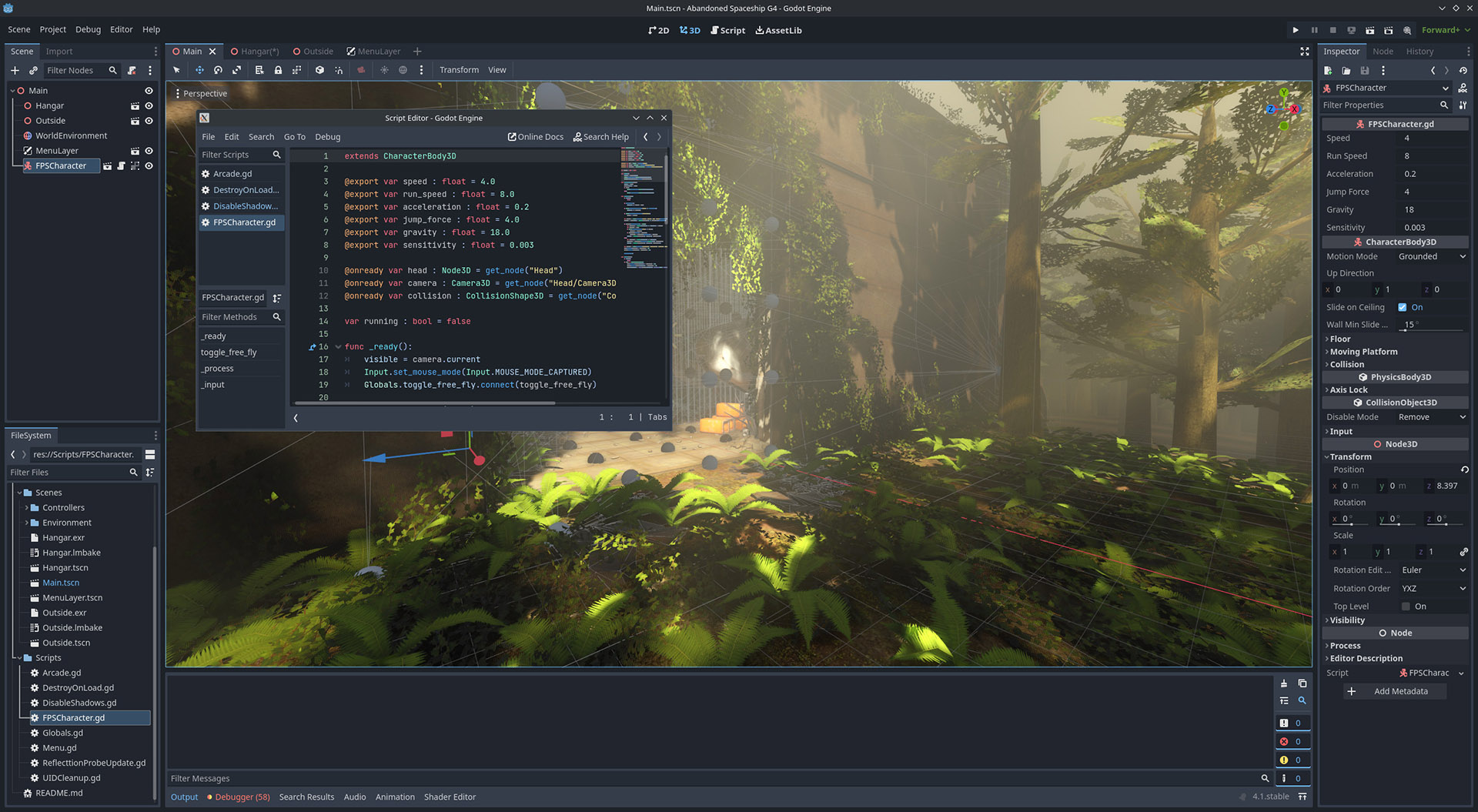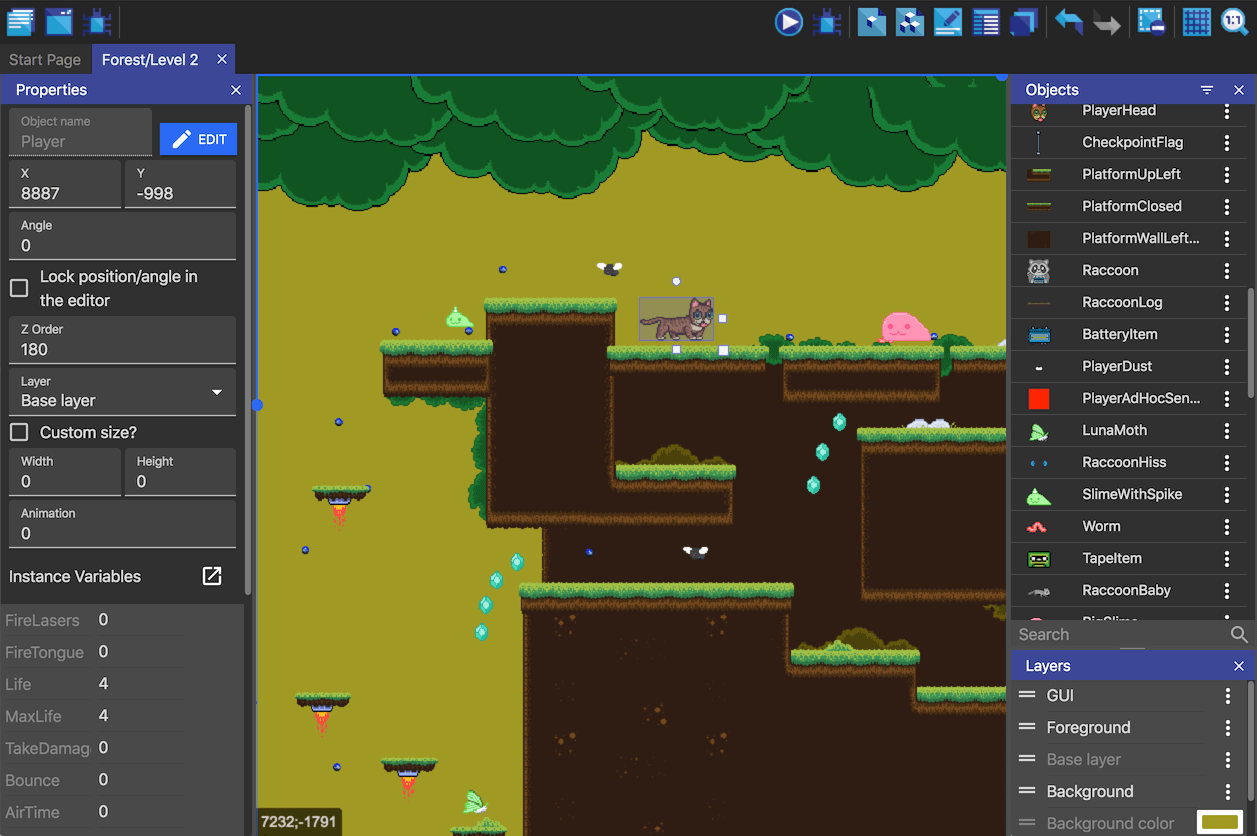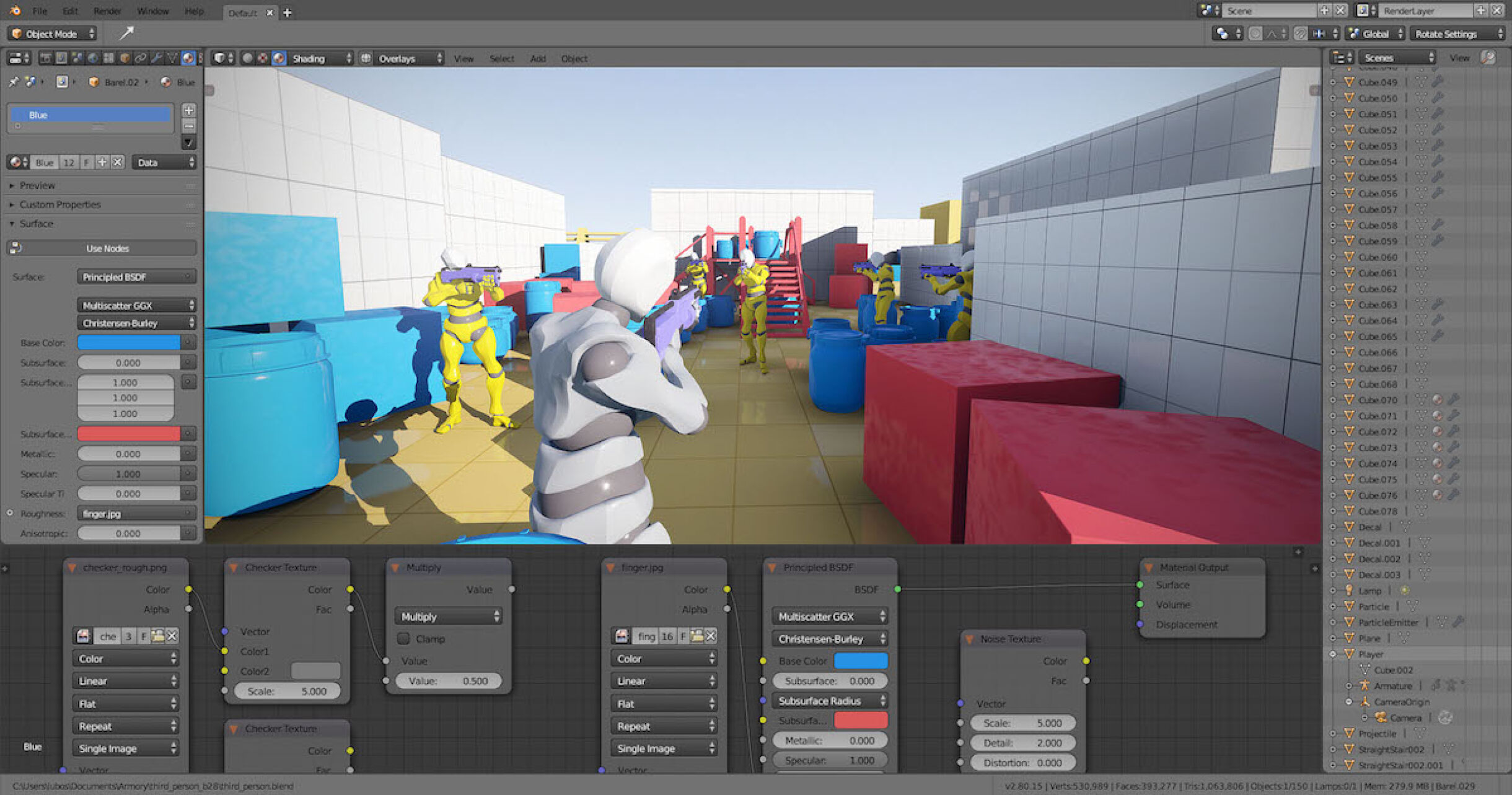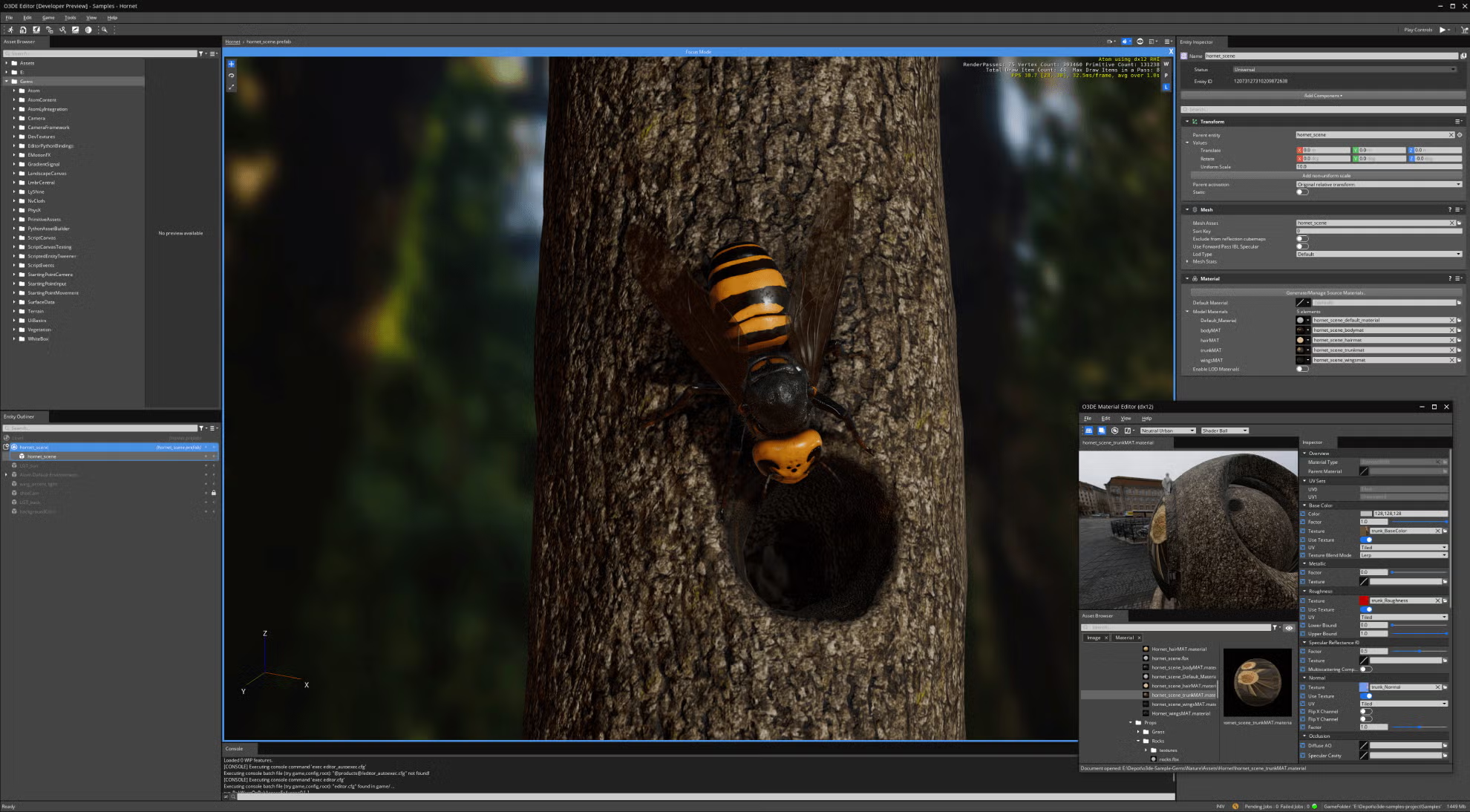Top 7 Open Source Game Engines and Their Capabilities in 2025

Writer
Baha Pirani From Blacave

Top 7 Open Source Game Engines
In recent years, open source game engines have surged in popularity, offering indie developers and hobbyists powerful, customizable tools without the high costs of proprietary software. Whether you're developing a 2D platformer, a 3D RPG, or even a VR experience, there's likely an open source engine that fits your needs. In this article, we’ll explore the best open source game engines in 2025 and what makes them stand out.
1 - Godot Engine
Godot Engine has become one of the most beloved open source game engines. Known for its lightweight design, active community, and versatility, Godot supports both 2D and 3D game development.
Key Features:
- Node-based scene system
- GDScript (Python-like language) and C# support
- Visual scripting
- Lightweight, cross-platform editor
- Export to multiple platforms (Windows, Linux, Android, iOS, Web, etc.)
- Active community and official documentation
Godot is ideal for both beginners and experienced developers looking for a clean and efficient development environment.

Godot Engine
2 - GDevelop
GDevelop is a no-code, open source engine perfect for creating 2D games. It’s especially useful for educational purposes and rapid prototyping.
Key Features:
- Drag-and-drop interface with event-based logic
- Easy export to HTML5, Android, Windows, and more
- Community extension library
- Beginner-friendly with lots of tutorials
- No programming required
While not as powerful for complex games, GDevelop is unmatched in accessibility and simplicity.

GDevelop Game Engine
3 - Armory 3D
Armory 3D integrates directly into Blender, making it an excellent option for artists and developers familiar with Blender’s interface.
Key Features:
- Blender-native integration
- Real-time rendering with Kha and WebGL
- Haxe scripting and visual nodes
- Export to web, desktop, mobile, and consoles
- Physically-based rendering (PBR)
Armory is still growing, but its seamless Blender workflow and open pipeline are unique selling points.

Armory Game Engine
4 - O3DE (Open 3D Engine)
Backed by the Linux Foundation and Amazon, Open 3D Engine is a highly modular and scalable 3D engine suitable for AAA projects.
Key Features:
- C++ and Lua scripting support
- High-performance renderer (Atom Renderer)
- Modular system for custom builds
- Cloud-native tools and multiplayer backend (AWS integration)
- VR/AR support
While more complex than Godot or GDevelop, O3DE is built for large-scale, high-fidelity games and simulations.

Open 3D Engine
5 - Panda3D
Panda3D is a mature engine focused on 3D rendering and game development, widely used in academic settings and research.
Key Features:
- Python and C++ support
- Real-time 3D rendering
- First-class scene graph system
- Physics, animation, and AI modules
- Cross-platform support
Though not as popular as Godot, Panda3D offers a stable and flexible environment for developers familiar with Python.

Panda Game Engine
6 - Stride
Stride Engine is a powerful, open source C# game engine designed for creating high-performance 2D and 3D games. Originally developed by Silicon Studio, it is now fully open source under the MIT license and maintained by the community.
Key Features:
- Fully written in C# with .NET Core support
- Real-time global illumination (GI)
- Physically Based Rendering (PBR)
- Visual editor with scene graph and prefab system
- VR and AR support
- Multi-platform export (Windows, Android, Linux)
Stride stands out for its advanced rendering capabilities, making it a solid alternative to Unity for C# developers who want full access to the source code and a modern graphics pipeline.
Stride Game Engine
7 - Bevy Engine
Bevy is a refreshingly modern, data-driven game engine built entirely in Rust. It leverages the powerful ECS (Entity-Component-System) architecture and focuses on performance, scalability, and developer productivity.
Key Features:
- Built in Rust with safe, fast performance
- Data-driven ECS architecture using Bevy ECS
- Live hot-reloading of assets
- Cross-platform support (Windows, macOS, Linux, WebAssembly)
- Modular renderer (WGPU-based for WebGPU support)
- Strong plugin ecosystem
Bevy is particularly attractive to developers who value low-level control, safety, and concurrency. While still maturing, its rapidly growing community and cutting-edge architecture make it a top choice for Rustaceans and performance-focused game developers.

Bevy Game Engine
Why Choose Open Source Game Engines?
Open source engines offer several advantages:
- Cost-efficiency: No license fees or royalties
- Transparency: Full access to source code
- Modify the engine to suit project needs
- Community-driven: Frequent updates, plugins, and tutorials from passionate contributors
Whether you're launching a commercial indie title or learning game development, these engines provide the tools without financial barriers.
Frequently Asked Questions (FAQ)
Can I use open source game engines for commercial projects?
Yes, most open source licenses (like MIT, GPL, Apache 2.0) allow commercial use. Always review the specific license terms.
Is Godot better than Unity or Unreal?
Godot is lighter and fully open source, making it great for small to medium projects. Unity and Unreal offer more built-in tools for AAA-scale games, but at the cost of licensing complexity.
Which engine is best for beginners?
GDevelop and Godot are ideal for beginners. GDevelop requires no coding, while Godot offers both visual and script-based development.
Are open source engines good for 3D games?
Yes. all of the engines we've introduced except GDevelop provide solid 3D development tools, though they may require more setup than commercial engines.
Do open source engines support multiplayer or online features?
Yes, though implementations vary. Godot, O3DE, Panda3D and Stride have networking support or can be extended with third-party tools.

Writer
Baha Pirani From Blacave



